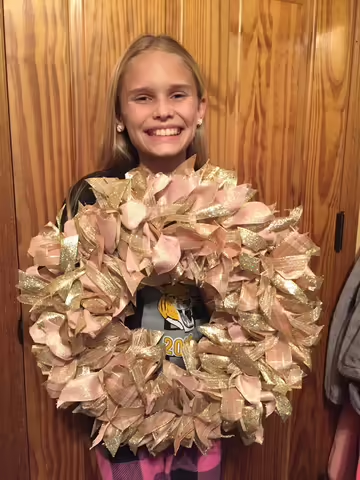PEKIN, Ill. - Hands-on, experiential learning is at the core of the 4-H program. When programs were transitioned to virtual, local 4-H staff developed an innovative program called 4-H Spark Camp that upheld the 4-H learning style that youth and their families could do together at home.
“During the worst of the pandemic schools were closed, youth activities were cancelled, and people didn’t want to risk exposure by going anywhere,” explained Emily Schoenfelder, 4-H youth development educator. “Kids were bored, and parents were at their wits’ end. They needed something to do. Something fun for kids and low-stress for parents.”
Spark Camp was a series of virtual, hands-on workshops taught by
4-H volunteers, staff, and teen leaders as well as professionals from several community partners such as the Society for Women Engineers and CeMaST. All project supplies and materials were provided for the hands-on workshops. Funding for materials was provided by the Tractor Supply Company Paper Clover campaign. At the time of the workshop, youth and families could log in to the video call, open their kit of materials, and participate in interactive, skill-building activities.
An added benefit to this program approach was that additional family members could join the youth as they learned how to complete a project or do an experiment. Post-program surveys indicated Spark Camp helped 62% of respondents feel more connected to a friend and 74% feel more connected to a family member.
One family provided an excellent summary, saying, “I loved this as a parent and my 4-Her did as well. The whole experience was beneficial. Getting more comfortable with video conferencing and interacting. Learning new skills.”
There were 34 workshops offered across three sessions. Over 140 young people registered to attend, with youth registering for an average of four workshops each. Examples of workshop topics included:
- · Cupcake Decorating
- · Pet Care
- · Flower Arranging
- · DIY Electromagnet
- · Basic Hiking Survival
- · Chemical Reactions to Fake a Volcano
- · Summer Garland
- · Butter, Ooblek & Slime: Non-Newtonian Fluids
When surveyed about their experience, 98% of respondents said they tried something new while 97% indicated that they wanted to continue learning about the topics covered.
University of Illinois Extension offers a wide variety of programs for both youth and adults as well as families to do together. Visit their website to learn more, extension.illinois.edu/fmpt.
SOURCE: Emily Schoenfelder, 4-H Youth Development Educator, eschoe@illinois.edu
ABOUT EXTENSION: Illinois Extension leads public outreach for the University of Illinois by translating research into action plans that allow Illinois families, businesses, and communities to solve problems, make informed decisions, and adapt to changes and opportunities.
ABOUT ILLINOIS 4-H: 4-H strives to help youth learn skills for living. University of Illinois Extension provides 4-H programs in every county in Illinois. Illinois 4-H aims to impact the lives of 200,000 youth each year through sustained learning clubs and groups and short-term programming.
